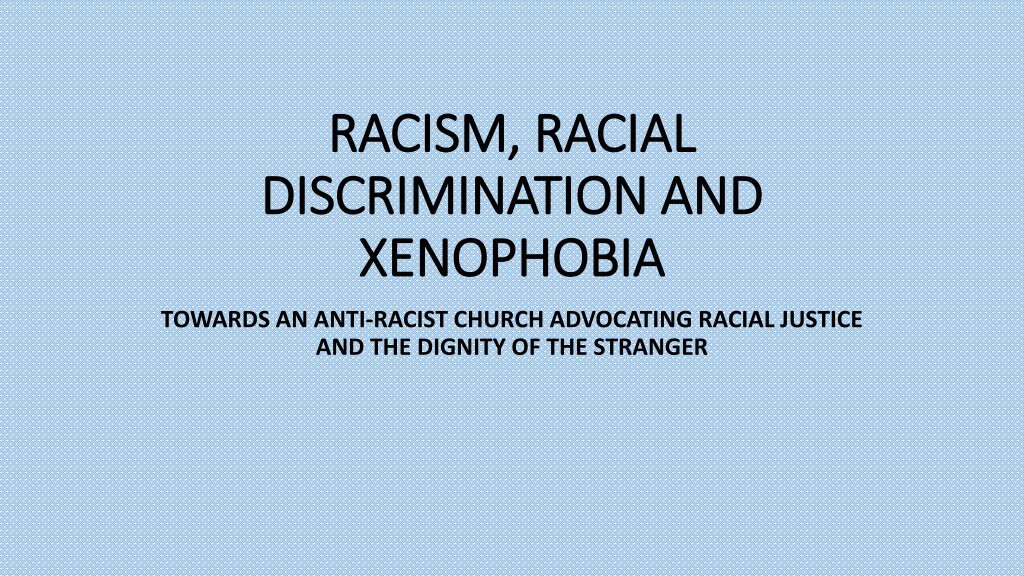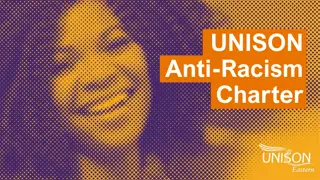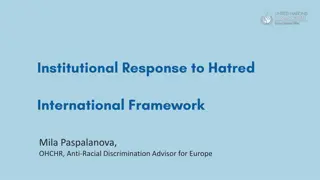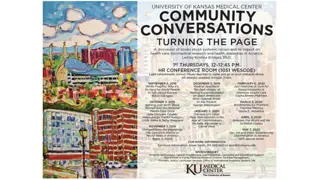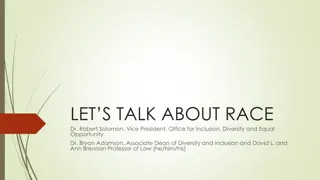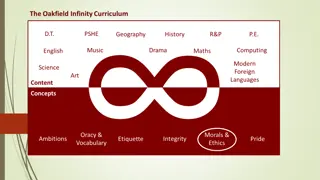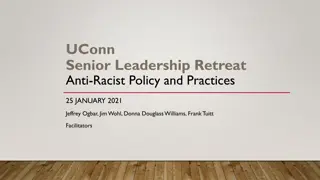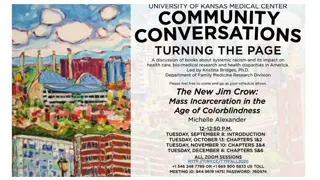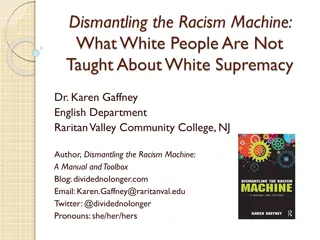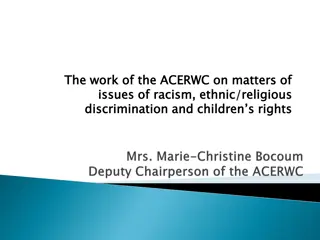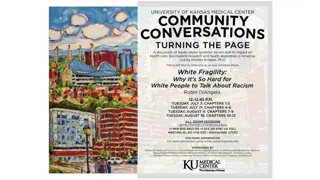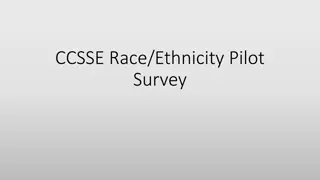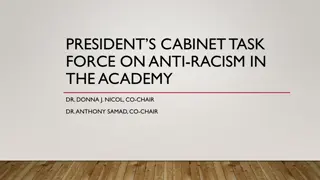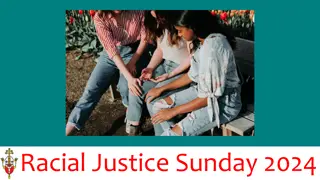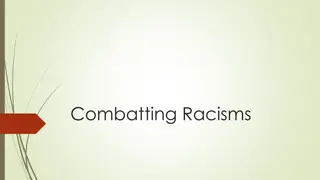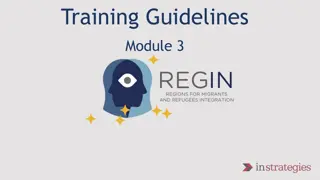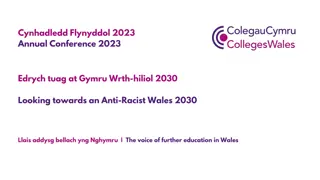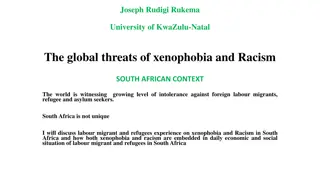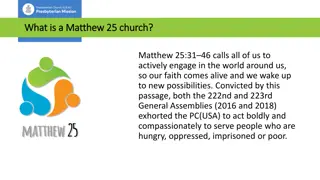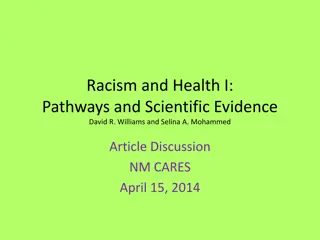Understanding Racism, Racial Discrimination, and Xenophobia in the Context of an Anti-Racist Church Advocating for Justice
Racism, racial discrimination, and xenophobia are real issues that impact lives based on color, ethnicity, and cultural background. The International Convention for the Elimination of Racial Discrimination defines racism as promoting racial hatred and discrimination. The World Council of Churches (WCC) commits to overcoming these challenges by promoting justice, peace, and human dignity. Regional manifestations of racism vary, affecting diverse groups differently. This article delves into the history, definitions, and commitments of the WCC in combating racism and promoting equality.
Download Presentation

Please find below an Image/Link to download the presentation.
The content on the website is provided AS IS for your information and personal use only. It may not be sold, licensed, or shared on other websites without obtaining consent from the author. Download presentation by click this link. If you encounter any issues during the download, it is possible that the publisher has removed the file from their server.
E N D
Presentation Transcript
RACISM, RACIAL RACISM, RACIAL DISCRIMINATION AND DISCRIMINATION AND XENOPHOBIA XENOPHOBIA TOWARDS AN ANTI-RACIST CHURCH ADVOCATING RACIAL JUSTICE AND THE DIGNITY OF THE STRANGER
What is Racism? What is Racism? International Convention for the Elimination of all forms of Racial Discrimination (ICERD) Article 4 defines racism as ideas or theories of superiority of one race or group of persons of one colour or ethnic origin, or which attempt to justify or promote racial hatred and discrimination in any form. A race was first used to refer to speakers of a common language, then to denote national affiliations, skin pigmentation etc. The UN and WCC both agree that there is no scientific, rational or faith basis for putting people into different races because there is only one human family. While race is imagined or imaginary, racism, racial discrimination and xenophobia are all real, and there are many people that have experienced these and whose lives have been shaped by these experiences These experiences have arisen because of one s skin colour, ethnic origin, linguistic background, Caste or cultural heritage. Physical diversity or any diversity is not the problem! It is OK to observe our differences, just as we observe our similarities BUT problem arises when our differences are used as a basis for sanitizing hatred, discrimination, exclusion, deprivation and denial of rights, dignity and privileges.
THE WCC: A FELLOWSHIP OF CHURCHES Overcoming racism, racial discrimination and xenophobia is a commitment that is at the intersection of the core commitments made by WCC member churches. WCC member churches commit to reflect, speak, act, worship and work together, challenge and support each other, share and debate with each other to realise or to facilitate the establishment of justice and peace in the world. Racism, racial discrimination and xenophobia are symptoms of the absence of justice and peace, of denied human dignity and of a failure to live by the tenets of our faith.
WCC REGIONAL MANIFESTATIONS OF RDX WCC REGIONAL MANIFESTATIONS OF RDX Racism, xenophobia are experiences shared by many people in all the regions of the world. racial discrimination and Some manifestations are peculiar to some regions, though mostly, different regions tend to have dominant and dormant manifestations of RDX. Other manifestations are prevalent in all regions, especially, people of African descent appear to be the worst affected groups in all the regions. immigrants and Racism is not simply about the colour of one s skin, it is about ethnicity, culture, language, hair texture, and caste! Racism affects people differently, men and women of the same race do not suffer exactly the same experience
PRE-1948: SOME OBSERVATIONS BY ECUMENICAL GROUPS The race-problem was noted and discussed at the Stockholm Conference on Life and Work (1925), there was great optimism that preaching the brotherhood of men and spreading modern education would result in race-prejudice being eliminated. The International Missionary Council meeting in Jerusalem (1928) demanded worldwide interracial unity . While the ecumenical movement was observing the presence of race-prejudice, the 1930s to the 1940s saw one of the worst atrocities in human history when in the name of racial purity six million Jews were systematically murdered. Some Christians opposed this atrocity others supported it and many others remained silent, praying and not doing anything about it. The Oxford Conference (1937) on Church, Community and State spoke, against racial pride, racial hatreds and persecutions, and the exploitation of other races in all their forms These problems, as well as many others that were exposed by the World War 2, must have led churches to realise the need for justice and peace and their responsibility in making sure there is justice and peace in the world.
MILESTONES IN WCCS RACIAL JUSTICE INTERVENTIONS From its formation, the WCC has consistently focused on racial injustice making key declarations and pronouncements along the way: First Assembly, Amsterdam 1948; The Church as a worshipping body is the community of people who have found oneness in Jesus Christ. We strongly affirm our conviction that the Body of Christ cannot be divided by racial class and other discriminations, and that any church or Christian group which upholds them in the name of Christ, is denying the very meaning of the Christian faith. Second Assembly, Evanston 1954; resolved that any form of segregation based on race, colour, or ethnic origin is contrary to the gospel, and is incompatible with the Christian doctrine of man and with the nature of the Church of Christ. Fourth Assembly, Uppsala 1968; Racism is a blatant denial of the Christian faith. (1) It denies the effectiveness of the reconciling work of Jesus Christ, through whose love all human diversities lose their divisive significance; (2) it denies our common humanity in creation and our belief that all men are made in God s image; (3) it falsely asserts that we find our significance in terms of racial identity rather than in Jesus Christ. The fourth Assembly correctly linked racism to economic and political exploitation and called for practical action from churches including divesting investments from institutions seen to be supporting institutional forms of racism, establishment of the Programme to Combat Racism.
MILESTONES CONTINUED In the rationale for setting up the Programme to Combat Racism (1969), the WCC noted that Racism is not an unalterable feature of human life. Like slavery and other social manifestations of man s sin, it can and must be eliminated Clearly a determined attack on racism must come as a commitment of the WCC. The most telling position of the WCC emerged at the Fifth Assembly in Nairobi in 1975. After a thorough theological analysis of racial discrimination, the WCC concluded We are obliged to confess that racism is a sin, not only of individual Christians, but of churches and societies at large The term collective sin is appropriate because it indicates that racism has so permeated the churches and the societies in which they are set that it has become part of the structure of ordinary life. People have become accustomed to patterns of neglect of and contempt for others, of injustice and prejudice, of degradation and exploitation and, now regard them as normal We are not branding racism as sin without at once responding to it with real and practical penitence. This response involves repentance both at the individual level and at the corporate level, and repentance commits us to action. The two elements are intimately connected, which is why we prefer to speak of repentance-action or penitent action. With this conviction, the WCC committed to stand with colonised peoples and was actively involved in the liberation of peoples of Southern Africa until the fall of apartheid in South Africa in 1990. Thereafter, other pressing needs allowed responses to racism to recede in visibility. Events in Charleston in 2015, when 9 African American Christians were murdered while gathered for a Bible Study in Church forced racism to re- appear in a forceful way in the face of the ecumenical movement. Developments since then led to the establishment of the current programme to Overcome Racism, Racial Discrimination and Xenophobia. Programme to Overcome Racism, Racial Discrimination and Xenophobia (2021) is a transversal recognizing racism, racial discrimination and xenophobia permeate all spheres of our life and must be opposed and overcome by using all instruments at our disposal in sacred texts, theology, prayer and other instruments such as UN mechanisms. Time to be Proudly Anti-Racist Christians, Muslims, Hindus, Bahais, Buddhists etc!
CONCLUDING OBSERVATIONS CONCLUDING OBSERVATIONS There is no credible basis, both in science, faith and society for racial injustice The onus to overcome racism, racial discrimination and xenophobia is on all people of goodwill, the WCC exhorts its member churches to take the lead in their societies by ridding themselves of these evils and advocating for government commitments to do the same. I, therefore, want to commend you for taking this initiative, I want to implore you all to revisit the significance of the penitent action proposition from the fourth Assembly of 1975. Let us work together to expand the conversation beyond your church!
